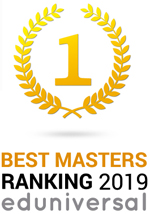The Two Cultures: The Humanities in Leadership Research, Education, and Practice
In 1959, the British novelist and chemist C.P. Snow sounded the alarm about the dangerous knowledge gap between the humanities and the sciences. A gap that left leaders poorly educated and ill-equipped to solve complex social problems. Snow thought an educated person should be able to describe the second law of thermodynamics with the same ease as the plot of a Shakespeare play. Lately, I have found myself thinking about Snow’s lecture. As a philosopher who has been on the faculty of liberal arts schools and business schools for over 45 years, my concern is the opposite of Snow’s. He worried about people not understanding science and technology. I worry because the humanities are usually absent from business education and research. There has been a growing perception in academia and society that social science research is epistemically superior to the humanities. By epistemically superior, I mean that social science research not only results in a different kind of knowledge but a superior one. Like Snow, I think it is dangerous to favor one area of inquiry over another. We need both.

November, 09 2020 | Joanne B. Ciulla
The Humanities in Leadership Studies
My article “The two cultures: The place of humanities research in leadership studies” (2019) compares and contrasts humanities and social science research in leadership studies. I argue that we cannot fully understand leaders and leadership without the wisdom that we get from the humanities. The paper draws on Jerome Kegan’s book The Three Cultures: Natural Sciences, Social Sciences, and the Humanities in the Twenty-first Century (2009) for support. Kegan shows that, despite their differences, research in science, social science, and the humanities have three elements in common:
- A set of unquestioned premises that create preferences for particular questions and equally particular answers
- A favored collection of analytical tools for gathering evidence
- A preferred set of concepts that are at the core of explanations
While the methodology of science, social science, and the humanities are different, all three engage in a systematic study of phenomena. Moreover, the social sciences and humanities study the same things—human nature and the interactions of people in society.
Some philosophers have argued that the sciences offer explanations, whereas the humanities provide understanding (Von Wright, 1971). Nevertheless, you cannot have understanding without explanation and vice versa. The quantitative empirical approach to leadership research rests on the scientific method, i.e., if you get the method right, your findings are sound. Humanities research depends on critical interpretation or trying to understand what things mean or imply. Compared to the scientific method, humanities research appears messier because it is subjective and value-laden. Yet, quantitative studies of leadership are never wholly objective or value-free and neither are their findings.
Much of the leadership literature in management journals consists of survey studies done in various organizations. The results of such studies are usually quite narrow, despite the authors’ copious citations to other related studies. These articles sometimes use citations as substitutes for arguments and analysis. At times, the references are nothing more than name dropping because it is clear that the authors did not read the article. One way that humanities research is superior to empirical research is in its focus on texts and interpretation. Humanities scholars have to carefully read their sources and create arguments for what they discover. In an age when information is plentiful, critical examination of it is as necessary as the information. While the findings of a historical study may not seem as precise as a scientific empirical one, they are often more generalizable and can lead to meaningful and useful research questions. After all, leadership research should yield information that is helpful to leaders and leadership development.
So why are the humanities essential for understanding leadership? The simple answer is that leadership is about a specific kind of human and moral relationship that usually involves sharing or pursuing common goals. Literature, art, and history expand our perceptions of social interactions and values. Moreover, they help us comprehend contextual factors that affect how people respond to analogous situations. In short, the humanities give us a vast “data set” of narratives about human nature and human behavior.
By mining what philosophy, history, religion, literature, and the arts tell us about leadership, we may use them to develop scientifically testable hypotheses about leadership. Employing a combination of humanities insights and scientific examination would add a richness and depth to leadership research that is rare in the current literature. This combination of disciplinary approaches can only occur if, as Snow suggests, we educate researchers in the humanities and the social sciences. Most doctoral programs train their students to be narrow specialists, so this may not be easy. However, collaboration between scholars in the humanities and social sciences is also a viable option.
The Humanities in Business Education and Leadership
While my article aims to promote humanities research in leadership studies, its argument has broader implications for teaching and research in business schools. Business schools seldom offer courses on history, philosophy, art, or literature—except for the occasional elective or a business ethics course. After all, their curriculum has to be practical and compact so that they can be competitive in today’s MBA and job market. Many business schools claim their mission is to develop business leaders. Still, you would not know it from what they teach and value. Business schools and students sometimes place more emphasis on quantitative courses than the so-called “soft” courses like management. Yet, leadership is not about numbers. Unlike the quantitative functions in finance and accounting, we will never be able to replace leaders with artificial intelligence or robots.
Ethical and effective leadership requires an ability to see the big picture, interpret information, understand people, assess context, and consider the values that inform our shared humanity. History develops perspective, and literature and art develop interpretative skills. Philosophy, religion, and the arts engage us in discussions about moral values, emotions, and human aspirations. The humanities stimulate imagination and build an intellectual foundation for leaders to create compelling visions for their organization or society. The humanities develop the capacities business leaders need to navigate the current pandemic. How they go about sustaining their businesses and caring for their employees’ health and well-being ultimately depends on how they see their actions in the context of our shared humanity.
Joanne B. Ciulla is Professor of Leadership Ethics and Director of the Institute for Ethical Leadership, Rutgers Business School, Newark, New Jersey, USA.
References
Ciulla, JBC (2019) “The Two Cultures: The Place of Humanities Research in Leadership Studies. Leadership 15(4): 422-434.
Kagan J (2009) The Three Cultures: Natural Sciences, Social Sciences, and the Humanities in the Twenty-first Century. New York: Cambridge University Press.
Von Wright GH (1971) Explanation and Understanding. Ithaca, NY: Cornell University Press.






















It is mandatory to be registered to comment
Click here to access.
Click here to register and receive our newsletter.